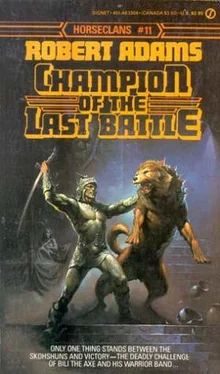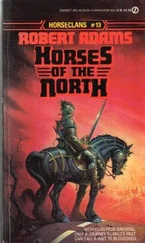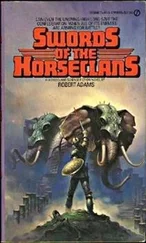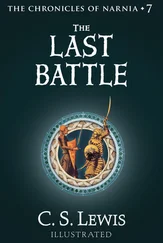“When you return, I’ll probably still bet at meat with Skohshun, the old one. Don’t come into our presence. I still don’t wish him to know that the bane of their herds is one of my valued warriors. Instead, beam the information to me. Then stand ready to cross the plain into the southern mountains. I need to be in communication with Sir Geros as soon as possible, and only my loyal cat brother’s mind is powerful enough to allow for such distance.”
“Must Whitetip take that useless number-cat with him on his scouting tonight, cat brother?” inquired the prairiecat.
“No,” Bili replied, “Stealth lacks your endurance for long-distance travel. Tell her she is to go up to my suite and bide therein with my own female and our cubs until I return abovestairs. That strange killer still stalks, it seems—it killed and ate a man on two of the last three nights, despite a bad wound it suffered on the night you left to stampede the herd of the Skohshuns.”
The great furry brown beast slowly, softly approached the cradle wherein lay the two youngest Morguhns. Cruel, sparkling white fangs gleamed as the two infants were sniffed thoroughly from end to end. Olfactory investigation completed, Stealth gently licked those skin surfaces she could easily get her wide tongue at.
“They are good-sized cubs, cat sister,” she mindspoke Rahksahnah. “But still are they both smaller than was your first cub, last year. It is not the usual for your kind to birth more than one at the time?”
Forgetting that she was mindspeaking, Rahksahnah shrugged, beaming, “That varies with strains and individuals, I think, my sister. My own mother, who was the brahbehrnuh before me, never bore more than one child at the time, but one of her blood sisters bore three, although two later died before reaching maturity. Another of their kin bore two sets of two; so I suppose that the possibility of bearing more than one is a part of my bloodline.
“But what of your own little cubs, sister? My Bili tells me that they are said to be well on the way to putting Count Sandee’s stoats out of business.”
With sharp knife and strong teeth, Sir Djahn Makadahm stripped the tender meat from off the bones of the young goat, repeatedly complimenting the consistency and delicate flavor of the whole-roasted kid.
“Meat of any fresh kind, not full of brine and pickling, is pleasing to me just now, Sir Bili, mightily pleasing. On the very night of your shrewd attempt to damage our camp, a huge mountain cat which has plagued us intermittently since first we went into camp stampeded our entire beef herd. The bawling bastards scattered to the four winds, and since then fresh meat has been rare and dear, leaving us usually with only salt pork and suchlike, that and the occasional stringy wild hare.”
“We have our own animal problems, here, Sir Djahn,” Bili remarked morosely, “but of a somewhat more serious nature than yours. Near every night for over a week now, a lean, reddish wolf has killed and eaten a man or woman in the burk.”
Sir Djahn leaned closer, saying excitedly, “Perhaps, Sir Bili, it is the same creature? This cat hunts only by night, too, as I think I said.”
“No.” Bili shook his shaven head emphatically. “No, there was clear spoor at the first kill we discovered, and there has been more since, as well as sightings, and it is truly a wolf. But such a wolf—a wolf as big as a small bear, that leaves paw prints a hand and a half long and at least a hand broad.
“And tough! Why, Sir Djahn, the beast slew and was eating a baker’s apprentice—a grown man, sizewise—one night last week when a party of cooks and bakers surprised him at it. One of them gashed the monster deep in the neck with a hard-flung cleaver and another ran a steel spit a good inch and a half in thickness some two feet into the creature’s body, yet still he not only managed to get away, but killed and ate again on the very next night, seemingly none the worse for being hacked and pierced. What do you make of that?”
The herald laid down the bone and the knife, dipped his fingers in the bowl of warm water and floating rose petals, then carefully wiped them on the cloth provided to the purpose, before answering softly and in a most serious tone.
“Have you considered the possibility, Sir Bili, that you might be dealing not with a proper, natural beast, but with a werewolf?” At Bili’s blank stare, he asked, “Does this wolf ever slay and eat other beasts?”
“No, Sir Djahn, and that has been an almighty puzzlement to us. The creature will pass directly in front of, leave spoor all around, a pen of helpless sheep or goats, then go into a house to kill and eat a grown man. Certain chambers back in the mountain, wherein we think he dens—for all that a thorough search failed to turn up trace of him—are all stacked high and hung with smoked flesh of all descriptions, yet he has never touched one flitch, that we could tell. He seems to crave only fresh-killed human flesh.”
“Just so, Sir Bili,” the elderly Skohshun nodded sagely. “When in his beast form, human flesh is all that a werewolf will ingest. And I find it understandable that you could not discover his lair, for he has none and needs none; in daylight hours, he passes freely and unsuspected among you, as one of you. Perhaps he even trod that dark warren beside you, or behind you, secretly laughing as he “aided” you in your search for that which he well knew did not exist.”
Bili did not try to repress or hide his shudder. “Then, Sir Djahn, is there no way to recognize, to detect, such a murderous monster in daylight?”
“A few,” answered Sir Djahn, “but they are not hard and fast or accurate in all cases, I have been informed; quite often, in fact, one or more of them will be possessed by men and women who are as normal as are you and I, so be most exceeding careful lest you make a hasty and erroneous judgment.
“When in their human guise, werewolves often are excessively hairy of body and limbs, with fast-sprouting beards and thick, coarse hair on their heads. More werewolves, it is said, have red or auburn hair than any other coloring. Their teeth are large and the upper cuspids are said to be noticeably longer than the other front teeth, and sometimes they are sharply pointed, as well. Often the two eyebrows of a werewolf will, when he is in his man form, grow thickly together above the nose, so that he appears to have but a single eyebrow. Men and women who are secret werewolves are exceeding strong and agile. The ears of these human monsters are said to be always small and laid flat against the skull, and sometimes they are pointed at the upper tip, as well. The third finger of their hands is right often as long or even longer than the middle one, whilst the nails of all the fingers are rounded rather than flat and very strong.
“Please understand, Sir Bili, I have never that I know of met or even seen a true werewolf. The knowledge that I pass on to you here is but a compendium of the ancient legends of my folk. The Skohshuns, long centuries agone, lived for a few years in a far northern land where real wolves were a constant menace and werewolves a hidden threat. But in my own life, I have known or at least met men and women bearing one or more of those supposed telltale traits who were no more werewolves than am I.
“I wish you luck, Sir Bili, whether you discover your manslayer to be natural or unnatural beast. But that discussion is not, you must know, the reason why my superior sent me back to enjoy your most generous hospitality.”
When the Skohshun herald had stated his case, he sat back and waited for what he was certain would ensue—probably polite refusal, possibly a refusal verging upon insult. He had been steeling himself for this latter possibility since he had ridden across the booming timbers of the bridge, for what he was here proposing was, indeed, ludicrous, all things considered. And so he was shocked to the innermost core of his being when his host answered.
Читать дальше












